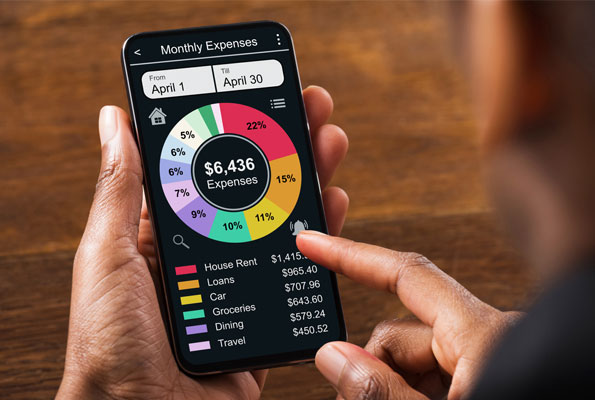The best budgeting apps often come at an affordable price range, apart from possessing simple features and the ability to integrate with the users’ bank accounts. While selecting such apps, one should look out for features like the apps’ ability to sync with bank accounts, track spending, and organize expenses into categories.
Also, one may want an app that offers automated savings, money-saving suggestions, bill alerts, access to credit scores, and investing features.
While some of these apps are free, some come up with monthly fees. And the most important thing is the security of your banking data/credentials. A check into the level of these apps’ security encryption is a must for users. Here are some of the best budgeting apps.
You Need a Budget (YNAB)
It offers a free trial for 34 days and after that, the users will have to pay a yearly cost of USD 99. If one prefers to pay less upfront, the cost is then USD 14.99 per month. The app allows its users to sync their bank accounts, import data from a file/manually enter each transaction. The app guides its new users about its features through video courses, live workshops, or a simple guidebook. YNAB offers a proactive budgeting approach rather than tracking the already spent money. After signing up with the app, the new user can create his/her budget and assign money for payments. It also protects user information by using bank-level encryption for all data.
Mint
Mint, which doesn’t charge any money to its users, has reportedly been dubbed as the best-known free budgeting app. The users can sync their financial accounts within the app or manually add transactions. Mint also allows its users to see all of their accounts in one place and keep track of their expenses. Apart from all these, the app organizes individual spending records, so the users can see these totals by categories. Mint offers monthly bill tracking too, including payment reminders. One can check his/her investments and portfolio fees through this app. Mint also have educational resources like a home affordability calculator, loan repayment calculator, and a blog with personal finance topics. The user data gets protected through features like security scanning with Verisign, multi-factor authentication, and touch ID mobile access.
Simplifi by Quicken
Simplifi by Quicken offers a free 30-day trial, and then the user will pay USD 3.99 monthly (billed annually at USD 47.99). The user will have to sync his/her bank accounts to get complete snapshots of the finances. The app automatically categorizes one’s spending, tracks recurring bills and subscriptions, and stays on top of future expenses. The app has a custom watchlist, which allows the user to limit his/her spending by category/payee. Also, the custom spending plan monitors cash flow to ensure the user never spends more than the monthly income. Quicken uses 256-bit encryption to transmit banking data and keeps the information confidential.
PocketGuard
The app offers a free and paid, premium version, PocketGuard Plus. The user needs to connect his/her checking, savings, and credit card accounts. The app will monitor the spending and then remind the user when credit card bills are due. PocketGuard’s “In My Pocket” feature uses an algorithm to identify how much money one can spend based on income levels, upcoming bills, goals, recent spending, and budgets. The app also offers a smart bill reminder to keep track of due payment dates and suggests areas where one can negotiate for lower bills. There’s also an automated savings feature, which allows the user to set and save his/her financial goals. PocketGuard automatically moves the money to a bank account on the user’s behalf.
Empower
This one is for those interested in wealth creation. The apps’ dashboards can be synced with bank accounts to generate a complete picture of one’s finances. The company’s primary app is free, with the option to add investment management services for 0.89% of the user’s money for accounts under USD 1 million. While Empower doesn’t allow its users to add budgeting transactions manually, one can perform the activity without account syncing. Empower’s budgeting tools help the user to see his/her total income and monthly expenses. The users can add a budget, compare it to previous months, and see their spending by categories.
Empower’s dashboard offers its users to see changes in their net worth, with the app’s ‘Fee Analyzer’ feature giving a closer look into one’s portfolio fees. The app also offers retirement and education planning tools. Apart from protecting its users’ data with encryption and authentication, Empower uses its partnership with fintech veteran Yodlee to offer another security layer.



